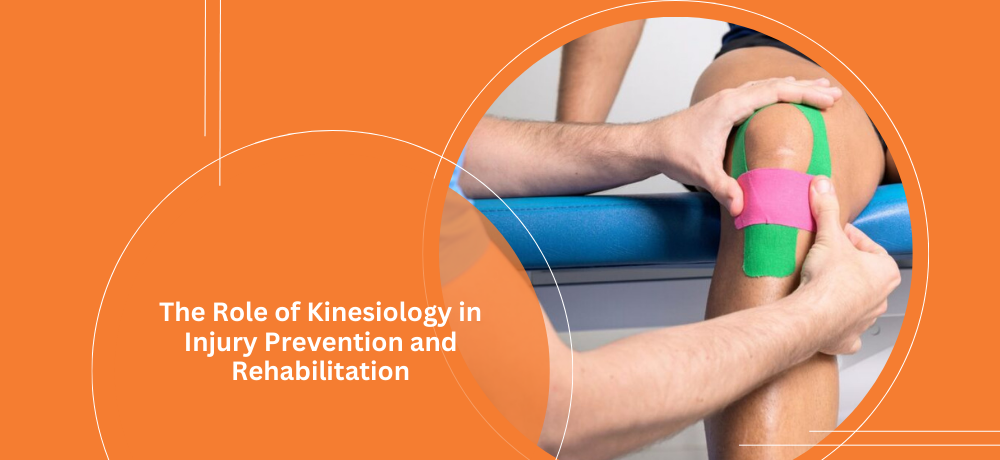The Role of Kinesiology in Injury Prevention and Rehabilitation

As someone who values their health and fitness, you understand the importance of staying injury-free and recovering swiftly if an injury does occur. In this blog, we'll delve into the crucial role of Kinesiology in injury prevention and rehabilitation. Whether you're an athlete looking to avoid setbacks or someone recovering from an injury, Fleming Fitness has the expertise to guide you. Let's explore how Kinesiology can be your ally in staying healthy and active.
Understanding Kinesiology: Unlocking the Secrets of Movement
Kinesiology is the science of human movement, and it plays a vital role in injury prevention. Our registered Kinesiologists assess your movement patterns and identify potential issues. This proactive approach can prevent injuries before they happen. By optimizing your movement, we ensure your body functions at its best.
Kinesiology-Based Comprehensive Movement Pattern Assessment:
Kinesiology is pivotal in injury prevention and rehabilitation by thoroughly assessing individuals' movement patterns. Through a keen understanding of Kinesiology, practitioners can discern even subtle irregularities or imbalances in how individuals move. These assessments are the cornerstone of injury prevention as they allow Kinesiologists to pinpoint potential problems before they lead to injuries. By leveraging their expertise in Kinesiology, these professionals can prescribe targeted exercises and interventions informed by Kinesiology principles to correct these issues, ultimately reducing the risk of injury significantly.
Tailored Functional Exercise Prescription with Kinesiology Expertise:
Kinesiology's strength lies in its ability to develop exercise regimens tailored to each individual's unique needs. Drawing from their knowledge of Kinesiology, experts in this field can prescribe exercises that specifically address muscle imbalances and weaknesses. These exercises not only help in strengthening the body but also enhance overall functional capacity. Through their understanding of Kinesiology principles, Kinesiologists can devise exercise plans to improve stability and rectify biomechanical issues, thereby substantially decreasing the likelihood of injuries related to improper movement patterns.
Kinesiology-Guided Injury Rehabilitation Expertise:
Kinesiology is indispensable in the rehabilitation of injuries. Kinesiologists are equipped with a profound understanding of the human body's biomechanics, which enables them to create highly effective rehabilitation programs. These programs are designed to systematically restore strength, flexibility, and functionality following an injury, all with Kinesiology principles at the core. The expertise derived from Kinesiology is critical in guiding the recovery process and minimizing re-injury risk.
Precise Biomechanical Analysis Informed by Kinesiology:
In the realm of injury prevention and rehabilitation, Kinesiology's contribution is exemplified through precise biomechanical analysis. Kinesiologists employ advanced tools and techniques grounded in Kinesiology to conduct in-depth studies of how the body moves during various activities. This Kinesiology-based analysis gives them valuable insights into movement patterns that may predispose individuals to injury. Armed with these insights, practitioners can devise targeted Kinesiology-driven interventions to mitigate these risks. This data-driven approach rooted in Kinesiology forms a robust foundation for injury prevention strategies.
Educational Empowerment with a Focus on Kinesiology and Proactive Prevention:
Kinesiology serves as a powerful educational tool for individuals seeking to prevent injuries. Kinesiologists are educators who empower individuals with knowledge about proper movement techniques, ergonomics, and posture, all based on the principles of Kinesiology. By imparting this understanding of Kinesiology, they enable individuals to make informed decisions about their physical activities and lifestyle choices. This proactive approach, grounded in Kinesiology, equips individuals with the Kinesiology-based tools they need to reduce the risk of injuries in their everyday activities and sports endeavors. It emphasizes the proactive aspect of Kinesiology in promoting long-term well-being.
At Fleming Fitness, we specialize in handling complex and catastrophic injuries, from complicated fractures to concussions and traumatic brain injuries. Our experienced team knows how to provide the care and guidance you need during challenging times.
To learn more about the services we offer, click here. To contact us, please click here or call us at (613)882-8434.
Get in touch with Fleming Fitness today!